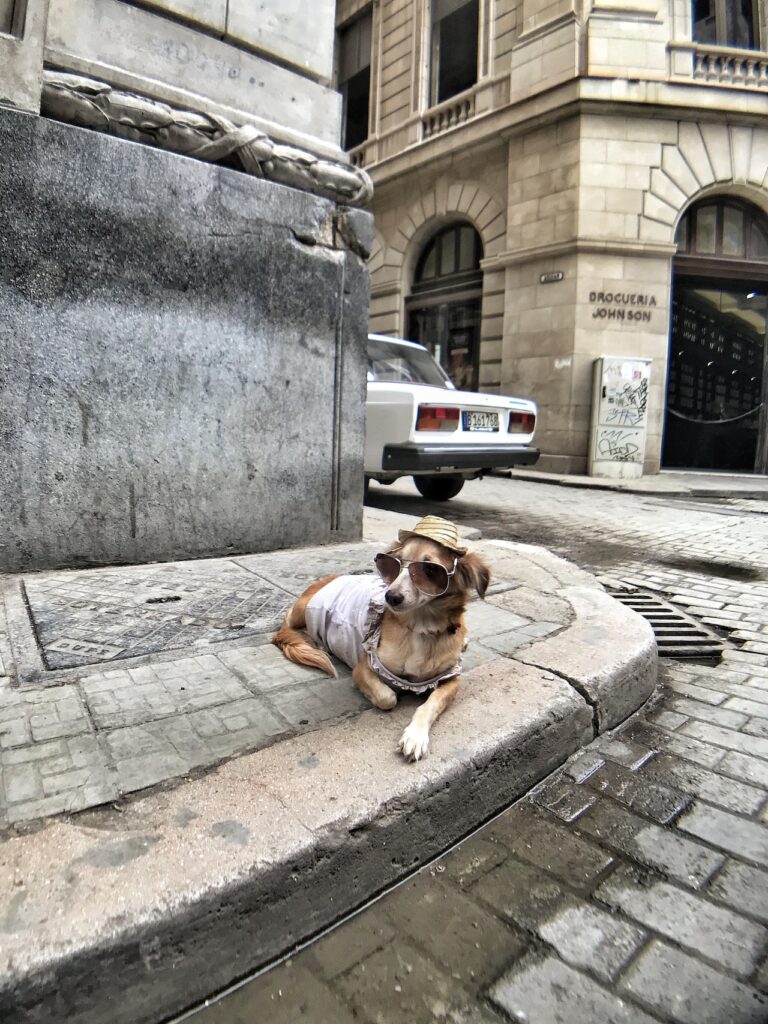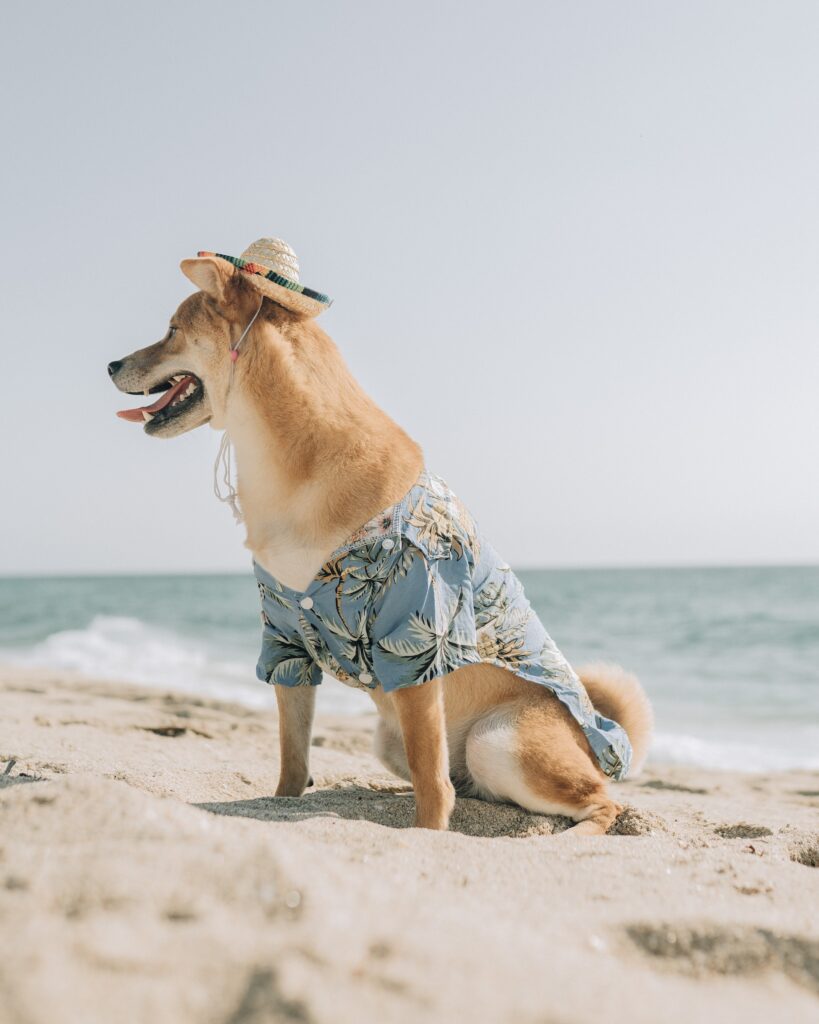Ah, the great British holiday – a time to relax, unwind, and explore the beautiful landscapes of the UK. Or, arguably more likely, to sit indoors with noses pressed up to raindrop pummelled windows, the Monopoly board dashed across the room after another game got a little too competitive…
Just us? At least you’ve got your trusty canine companion by your side, whatever the weather, ready to lift the mood, raise the spirits, and force you outside. Travelling with your dog can be an immensely rewarding experience, but it can also be stressful for both you and your furry friend if not planned properly.
Fear not, fellow dog lovers! We’ve got you covered with these seven expert tips to ensure a stress-free and enjoyable journey for everyone involved.
Research Dog-Friendly Destinations
Before embarking on your adventure, it’s crucial to find dog-friendly accommodations, attractions, and eateries. Websites like Dog Friendly and PetsPyjamas offer extensive lists of pet-friendly establishments across the UK. Be sure to book in advance and confirm their pet policies to avoid any unpleasant surprises upon arrival.
Or, you could of course check out IDEAL’s rundown of our favourite dog friendly hotels in the UK. You won’t regret it!


Visit The Vet
Firstly, it’s a smart move to have lifetime dog insurance in place, just in case there is an accident or your dog becomes unwell while you are away. This will offer you good peace of mind during your trip (and beyond). This will also cover those pre-holiday trips to the vet, which are essential in ensuring your dog is in good health and up-to-date on vaccinations.
Additionally, it’s worth discussing any potential travel-related anxieties or motion sickness concerns with your vet. They may recommend medications or natural remedies to help keep your pup calm and comfortable during the journey.
In some cases, your vet may also recommend a microchip implant for your dog (more of that a little later). This is an important precautionary measure that can help you locate your pet if they get lost during the trip.
Additionally, make sure your dog is up-to-date on vaccinations and has been given flea and tick prevention treatment before leaving. It’s better to take precautions beforehand rather than risk any health issues during the trip, ensuring taking your dog on holiday is a pleasure not a chore.
ID Tags & Microchipping
Let’s explore those In the unlikely event that your dog gets lost during your travels, proper identification is vital. Ensure your dog is microchipped and that your contact information is up-to-date on both the chip and their ID tag. UK law requires all dogs to be microchipped and registered to an approved database by eight weeks of age.
This simple step can make all the difference in reuniting you with your beloved pet. In addition to microchipping and ID tags, there are a few other precautions you can take to prevent your dog from getting lost in the first place; keep them on a leash or in a carrier when outside, ensure they are always supervised, and avoid busy areas where they could easily become overwhelmed and run off.
It’s also a good idea to have recent photos of your dog on hand, just in case. By taking these measures, you can travel with peace of mind knowing that you’ve done everything possible to keep your furry friend safe.

Pack A Doggy Travel Kit
Just like us humans, dogs need their essentials when travelling. Prepare a doggy travel kit that includes food, water, bowls, treats, toys, a leash, poop bags, a first-aid kit, and any necessary medications. Don’t forget a familiar blanket or bed to provide comfort and a sense of familiarity in new environments.
It’s also a good idea to make sure your dog has a sturdy and comfortable crate or carrier that is appropriate for their size and breed. This will not only keep them safe and secure during travel but also provide a familiar and comforting space for them. Finally, don’t forget to pack your dog’s favourite toys, treats, and food to help ease any stress and anxiety they may experience during the journey.
The ideal doggy travel kit includes:
- Dog carrier
- Collapsible water bowl
- Leash and collar
- Poop bags
- First aid kit
- Treats and chew toys
- Waste pick-up bags
- Identification tags
Plan Your Route With Your Dog’s Wellbeing In Mind
To keep your dog comfortable during the journey, plan regular breaks for stretching, toilet stops, and exercise. Websites like Driving with Dogs offer a wealth of information on dog-friendly rest stops throughout the UK. Remember, never leave your dog unattended in a parked car, as temperatures can rise rapidly, putting your pet at risk of heatstroke.
And, as we mentioned earlier, consider investing in a comfortable dog bed or blanket to make the car ride more cosy for your pet. By taking these simple steps, you can ensure that both you and your dog have an enjoyable and stress-free journey.
Secure Your Dog Properly
According to the Highway Code and, more specifically, their Rule 57, dogs must be suitably restrained in a vehicle to avoid distraction or injury.Options include a dog guard, crate, harness, or seat belt attachment. Ensure you choose the appropriate restraint for your dog’s size and breed, and introduce it gradually before your trip to help them feel more comfortable. It’s important to remember that even the most well-behaved dog can become anxious or excited during a car journey, so it’s crucial to take steps to ensure their safety.

Help Your Dog Adjust To New Surroundings
Upon arrival at your destination, give your dog time to explore and adjust to their new environment. Maintain their regular routine as much as possible, including feeding times and walks. And of course, shower them with plenty of love and attention to help them feel secure and happy.
If your dog seems anxious or nervous in their new environment, give them some extra reassurance by spending more time with them and providing them with their favourite toys or treats. You may also want to consider setting up a comfortable space for them to retreat to, such as a cosy bed or crate, helping your dog sleep more soundly.
Make sure to gradually introduce them to any new people or pets they may encounter, and monitor their interactions closely to ensure everyone stays safe and comfortable. With patience and care, your furry friend will soon feel right at home in their new surroundings.
The Bottom Line
Travelling with your dog doesn’t have to be a stressful experience. With proper planning, research, and a few expert tips, you and your four-legged friend can enjoy a paws-itively fantastic adventure across the UK. So pack your bags, grab the lead, and get ready to make memories that will last a lifetime!





